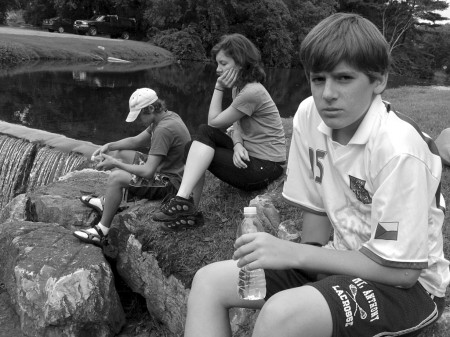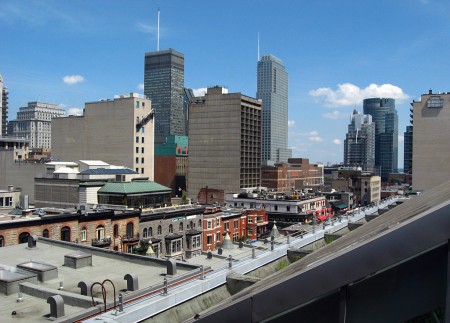Thesis: Canada is free to enact more stringent climate policies than the United States, but not free to enact less stringent ones.
Argument:
- As long as little is being done in the United States, American corporations are not concerned about being made uncompetitive with foreign firms because of climate change policies.
- If the United States did adopt a serious climate policy (a national cap-and-trade plan with auctioning, perhaps, or a carbon tax), those firms would suddenly be very concerned about losing business to firms not thus restrained. This is especially true in sectors with high emissions per dollar’s worth of output. This includes heavy industry, the petroleum sector, and so forth.
- These firms will lobby the American government to pressure its trading partners to adopt comparable policies.
- These firms will find many supporters in Congress who think similarly. Politicians will also be fearful of domestic job losses and the relocation of production to foreign jurisdictions with less stringent rules.
- In the case of Canada, legal vehicles through which this might occur include the North American Free Trade Agreement (NAFTA) and the World Trade Organization (WTO). Potentially, other agreements pertaining to transboundary pollution might play a role.
- If taking a legal route fails or is not desired, it is always possible for the US to put enormous trade pressure on Canada. 85% of Canadian exports go to the United States and even illegal trade blocking moves by the US can be so painful as to force a surrender (as with softwood lumber).
- No Canadian government will be willing to sacrifice access to the American market, even if avoiding it requires a considerable loss of face.
As such, there seems to be a decent change that if a new administration in the United States adopts a relatively strong national climate change mitigation policy, some version of the events above will lead to the introduction of a comparable regime in Canada. Of course, the ability of even an Obama presidency with Gore as a climate czar to get emission regulations through Congress cannot be taken for granted, largely on account of the short-term interests of the selfsame corporations mentioned above.
Comments? Counter-arguments?







